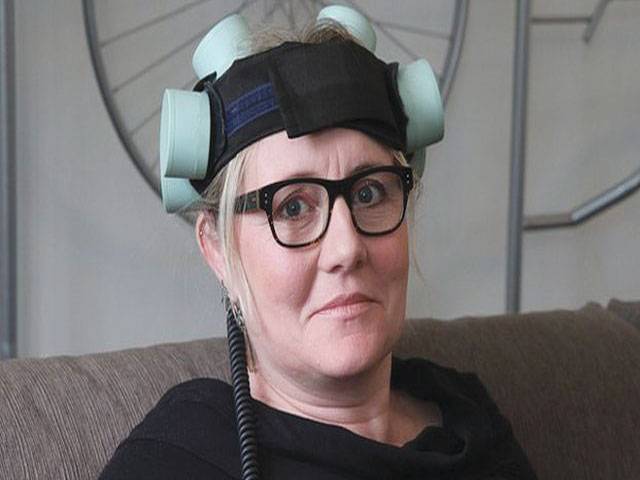BBC
Copenhagen -A helmet that delivers electro-magnetic impulses to the brain has shown promise in treating people with depression, Danish researchers have said.
About 30% of those with the condition fail to respond to medication or psychological counselling. The new device targets malfunctioning blood cells in the brain. In clinical trials two-thirds who used it reported that their symptoms had disappeared, and improvements in mood were noticeable within a week.
The helmet was tested on 65 patients with treatment-resistant depression. The trials were conducted by the Department of Cellular and Molecular Medicine at Copenhagen University and the Psychiatric Centre at Hillerod in North Zealand. Patients also continued taking their regular anti-depressant medication for the eight weeks of the trial.
‘They were feeling well, they were functioning well, they could start work,’ said Birgit Straaso, chief doctor at Hillerod. ‘The helmet is amazing,’ said Annemette Ovlisen, a graphic artist who suffered recurrent depression for 16 years and a participant in the Hillerod trials.
‘It’s like the fog lifts. It was like somebody hit the reset button.’ The device contains seven coils that deliver a dose of Transcranial Pulsating Electro Magnetic Fields (T-PEMF) to brain tissues.
The pulses are so minute that the patient cannot detect any sensation, and the only side effect so far is occasional ‘tiny’ nausea that immediately disappears after treatment. Prof Steen Dissing, of Copenhagen’s Faculty of Health Sciences is the helmet’s principal architect.
He said: ‘The device mimics electrical fields in the brain, and triggers the body’s own healing mechanism.’ The pulses activate capillaries in the brain, which form new blood vessels and secrete growth hormones.
Wednesday, February 19, 2025
Depression treatment technique uses new helmet therapy

Caption: Depression treatment technique uses new helmet therapy
KP Health Dept launches ‘Big Catch-Up’ vaccination campaign
February 19, 2025
KP govt focused on funding projects benefitting economy: Minister
February 19, 2025
KP minister announces ‘Sasta Tandoor’ scheme
February 19, 2025
Three drug dealers among six outlaws held in DIK
February 19, 2025
China, Pakistan strengthen renewable energy ties with strategic accord
February 19, 2025
Protecting Students
February 19, 2025
Fragile Peace
February 19, 2025
Real Power
February 19, 2025
Influenza Outbreak
February 18, 2025
NEPRA Salaries
February 18, 2025
Education Policy: A Conundrum
February 19, 2025
Moral Depravity
February 19, 2025
Global Income Inequality
February 19, 2025
Flood Crisis and Unfinished Dams
February 19, 2025
Exchange Deal and Faces
February 18, 2025
ePaper - Nawaiwaqt
Nawaiwaqt Group | Copyright © 2025





